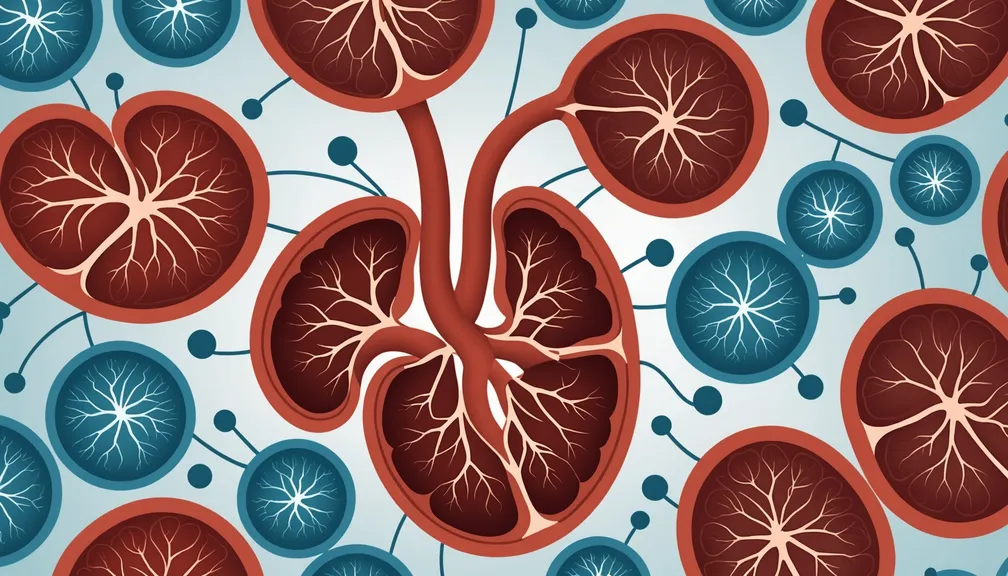Financial Assistance and Navigating Healthcare Systems
Dealing with a rare kidney disease can be overwhelming, not only because of the health challenges but also due to the financial and logistical aspects of managing your care. This lesson will guide you through understanding financial assistance options and effectively navigating the healthcare system to ensure you receive the support you need.
Understanding Financial Assistance Options
1. Health Insurance Coverage
- Review Your Policy: Start by thoroughly reviewing your health insurance policy to understand what treatments, medications, and services are covered.
- In-Network Providers: Utilize in-network healthcare providers to minimize out-of-pocket costs.
- Pre-authorization: Some treatments may require pre-authorization from your insurance company. Ensure you obtain the necessary approvals to avoid unexpected expenses.
2. Government Assistance Programs
- Medicare: Available for individuals aged 65 and older or those with certain disabilities. It covers hospital care, medical services, and prescription drugs.
- Medicaid: A state and federal program offering healthcare coverage to low-income individuals and families. Eligibility varies by state.
- Disability Benefits: If your kidney disease qualifies as a disability, you may be eligible for Social Security Disability Insurance (SSDI) or Supplemental Security Income (SSI).
3. Non-Profit Organizations and Charities
- Disease-Specific Organizations: Organizations like the National Kidney Foundation provide financial aid, support services, and resources for patients.
- General Health Charities: These groups offer grants or financial assistance to cover medical expenses, transportation, and other related costs.
- Pharmaceutical Assistance Programs: Some pharmaceutical companies offer programs to help patients afford medications.
4. Out-of-Pocket Costs Management
- Flexible Spending Accounts (FSA) and Health Savings Accounts (HSA): These accounts allow you to set aside pre-tax dollars to pay for medical expenses.
- Payment Plans: Many healthcare providers offer payment plans to spread out the cost of treatments over time.
- Discount Programs: Look for discount programs or coupons for medications and medical supplies.
Applying for Financial Assistance
1. Steps to Apply
- Gather Documentation: Collect necessary documents such as income statements, medical records, and identification.
- Complete Applications: Fill out applications for insurance benefits, government programs, and assistance from non-profits.
- Submit Promptly: Adhere to deadlines and submit all required information to avoid delays in receiving assistance.
2. Required Documentation
- Proof of Income: Pay stubs, tax returns, or bank statements to verify income levels.
- Medical Records: Detailed reports from your healthcare providers outlining your diagnosis and treatment plan.
- Identification: Government-issued ID, Social Security number, and other relevant personal information.
3. Tips for a Successful Application
- Be Thorough and Accurate: Ensure all information is complete and accurate to prevent application rejections.
- Follow Up: Regularly check the status of your applications and provide any additional information if requested.
- Seek Assistance: Don’t hesitate to ask for help from social workers, patient advocates, or support groups during the application process.
Navigating Healthcare Systems
1. Finding the Right Healthcare Provider
- Specialists: Seek out nephrologists and other kidney disease specialists with experience in rare conditions.
- Multidisciplinary Teams: Opt for healthcare providers who collaborate across different specialties to provide comprehensive care.
- Patient Reviews and Recommendations: Consider feedback from other patients when selecting healthcare providers.
2. Coordinating Care Among Specialists
- Primary Care Coordination: Establish a primary care physician to oversee your overall treatment and ensure all specialists are informed about your care plan.
- Communication: Maintain open lines of communication between all members of your healthcare team to avoid conflicting treatments or medications.
- Regular Meetings: Schedule regular meetings or updates with your healthcare team to discuss your progress and any changes in your condition.
3. Managing Appointments and Medical Records
- Organize Schedules: Use calendars or digital apps to keep track of appointments, medications, and treatment schedules.
- Access Medical Records: Request copies of your medical records and keep them organized for easy reference during appointments.
- Prepare for Visits: Write down questions and concerns before each appointment to ensure all your issues are addressed.
Support Services and Resources
1. Patient Advocacy Groups
- Role of Advocates: These groups can help you navigate the healthcare system, understand your rights, and connect with resources.
- Access to Information: They provide valuable information about treatments, clinical trials, and the latest research in rare kidney diseases.
2. Counseling and Mental Health Services
- Emotional Support: Coping with a rare kidney disease can be emotionally challenging. Counseling services can provide support for managing stress, anxiety, and depression.
- Support Groups: Joining support groups allows you to connect with others facing similar challenges, fostering a sense of community and understanding.
Types of Healthcare Professionals to Consult
- Nephrologist: A kidney specialist who manages your kidney disease treatment.
- Primary Care Physician: Oversees your general health and coordinates care among specialists.
- Social Worker: Assists with navigating financial assistance programs and provides support services.
- Nutritionist: Helps create a kidney-friendly diet plan to support your health.
- Pharmacist: Advises on medications, potential interactions, and managing prescriptions.
- Mental Health Professional: Provides counseling and support for emotional well-being.
Navigating the financial and healthcare aspects of a rare kidney disease can be daunting, but understanding your options and knowing where to seek help can make a significant difference. Utilize the resources and support systems available to ensure you receive the comprehensive care and assistance you need.






